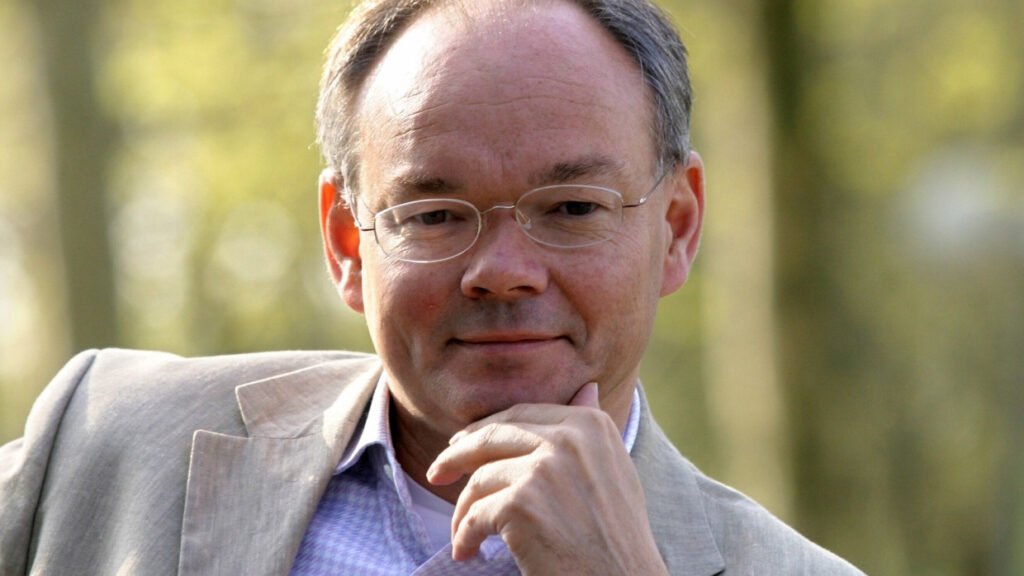Lutz Hachmeister is a well-known German journalist, filmmaker, author, and media historian. He is especially famous for his work in media research and documentary filmmaking. Over his long and distinguished career, he has made significant contributions to both the fields of journalism and film, with his work often focusing on topics such as politics, history, and media studies. Hachmeister’s influence has been felt across Germany and internationally, making him a respected figure in intellectual and cultural circles.
In addition to his work as a filmmaker, Hachmeister is also the founder and managing director of the Institute for Media and Communication Policy (IfM), which studies how media impacts society and politics. His insightful documentaries and research have made him a key figure in understanding how media shapes public opinion.
| Name | Lutz Hachmeister |
| Born | September 10, 1959 |
| Birthplace | Minden, North Rhine-Westphalia, Germany |
| Nationality | German |
| Occupation | Journalist, Filmmaker, Author, Media Historian |
| Education | Communication Studies, Political Science, Philosophy |
| Known For | – The Goebbels Experiment (2005) – Schleyer – A German Story (2004) – The Architects of Power (2004) |
| Founder | Institute for Media and Communication Policy (IfM) |
| Key Areas of Work | Media Policy, Journalism, History, Politics |
| Awards and Honors | Various awards for documentaries and contributions to media research |
| Spouse | Not publicly known |
| Children | Not publicly known |
| Years Active | 1980s – Present |
| Website | Not publicly available |
| Net Worth | Not publicly known (from media work, film, and academia) |
| Current Role | Managing Director at Institute for Media and Communication Policy (IfM) |
Early Life of Lutz Hachmeister
Lutz Hachmeister was born on September 10, 1959, in Minden, a town in North Rhine-Westphalia, Germany. As a child, he grew up during a time when Germany was undergoing significant social, economic, and political changes, which likely influenced his later interest in history, politics, and media.
Details about his early family life remain relatively private, but it is known that Hachmeister was academically inclined from a young age. He studied at a university in Germany, earning a degree in communication studies, political science, and philosophy. His academic background provided him with a solid foundation for his later work in media and documentary filmmaking.
Professional Life
Journalism and Media Research
Lutz Hachmeister’s professional journey began in journalism. He worked as a media journalist, writing about television and film, as well as the broader role of media in society. He was particularly interested in how media shapes political opinions and public discourse. His work often explored the relationship between the media and political power, which eventually led him to a career in academic research and documentary filmmaking.
In 1998, Hachmeister founded the Institute for Media and Communication Policy (IfM) in Cologne. This think tank specializes in studying how the media influences political decisions and shapes the way the public understands important issues. The IfM has become a leading institution in the field of media studies, producing research that is highly respected both in Germany and internationally. Through his leadership at IfM, Hachmeister has contributed to important discussions about how journalism and the media should function in democratic societies.
Filmmaking and Documentaries
Hachmeister is perhaps best known for his work as a documentary filmmaker. His films often focus on historical and political topics, particularly those related to German history and the role of the media. One of his most famous documentaries is “The Goebbels Experiment” (2005), which is about Joseph Goebbels, the infamous Nazi propaganda minister. The film uses Goebbels’ diaries and archival footage to examine how propaganda was used to manipulate public opinion in Nazi Germany. This documentary was widely praised for its deep historical insight and its ability to present complex ideas in a way that was accessible to general audiences.
Other notable works include “The Architects of Power” (2004), which looks at political consultants and their role in shaping modern politics, and “Schleyer – A German Story” (2004), which focuses on the life of Hanns Martin Schleyer, a prominent German industrialist who was kidnapped and murdered by the Red Army Faction in the 1970s. Hachmeister’s documentaries are known for being meticulously researched and for exploring difficult and sometimes controversial topics with sensitivity and care.
Academic Contributions
Beyond his work in filmmaking and journalism, Lutz Hachmeister has also made important academic contributions. He has written several books on media history, political communication, and journalism. His works are often used in university courses, particularly those focusing on media studies and the history of journalism.
In addition to writing books, Hachmeister has also lectured at various universities and conferences around the world. His deep knowledge of media policy and his ability to explain complex issues have made him a sought-after speaker on the subject of media and its role in society.
Personal Life
Though Hachmeister is well-known for his professional work, he keeps his personal life relatively private. Unlike many celebrities, he does not seek the spotlight for his personal affairs and prefers to let his work speak for itself. As of now, there is not much public information about his family life, including whether he is married or has children.
However, it is known that Hachmeister’s personal interests closely align with his professional work. He has a deep interest in history, politics, and the media, and much of his time is spent researching and creating documentaries or conducting studies through the Institute for Media and Communication Policy.
Achievements and Awards
Over the course of his career, Lutz Hachmeister has received several awards and recognitions for his work in media and film. His documentaries, in particular, have been praised for their insightful approach to complex historical and political subjects. Some of the key achievements in his career include:
- The Goebbels Experiment (2005): This documentary, one of his most famous works, received widespread acclaim and was shown at numerous film festivals. It offered an unprecedented look into the mind of one of Nazi Germany’s most notorious figures.
- Schleyer – A German Story (2004): Another critically acclaimed documentary, this film examined the political and social unrest in Germany during the 1970s. It was praised for its balanced portrayal of a complex and sensitive historical event.
- Institute for Media and Communication Policy: Hachmeister’s founding of the IfM is another significant achievement. Under his leadership, the institute has become one of the leading organizations for media research, producing valuable insights into the relationship between media and politics.
In addition to these works, Hachmeister has also been recognized for his academic contributions. His books and research papers are highly respected, and his work is frequently cited by other scholars in the fields of media studies and political communication.
Lutz Hachmeister’s Net Worth
While exact figures regarding Lutz Hachmeister’s net worth are not widely available in public records, it is estimated that his wealth comes from his various professional activities, including his work as a filmmaker, journalist, and academic. Filmmaking, particularly successful documentaries, can be quite profitable, especially when they are shown internationally or receive critical acclaim.
Moreover, Hachmeister’s leadership role at the Institute for Media and Communication Policy likely provides him with a stable source of income, as the institute is a well-regarded research organization. His books and academic publications also contribute to his income, as they are used widely in academic settings and by scholars researching media and politics.
Given his long and successful career, Hachmeister is likely to have accumulated a significant amount of wealth. However, it is important to note that his focus has always been more on contributing to society through his work rather than amassing personal wealth. As a respected intellectual and filmmaker, his primary legacy lies in the insights he has provided into the media’s role in shaping public opinion, as well as in his contributions to historical and political knowledge through his documentaries.
Conclusion
Lutz Hachmeister is a highly respected figure in the fields of media, history, and documentary filmmaking. His work has been instrumental in exploring how media influences politics and public opinion, and his documentaries have provided deep insights into important historical events and figures. Through his leadership at the Institute for Media and Communication Policy, Hachmeister has also contributed to academic research on media and communication.
While he keeps his personal life private, his professional achievements speak for themselves. He is a key figure in understanding how media shapes modern society and politics. His documentaries, particularly “The Goebbels Experiment,” have brought critical acclaim and highlighted his ability to tackle difficult historical subjects with care and precision. Though his exact net worth is not publicly known, Hachmeister’s influence and contributions are invaluable, making him a prominent intellectual in both German and international circles.







